William Carter LYNCH
William Carter LYNCH
New South Wales Police Force
Regd. # ‘P’ 0035
For the purposes of this website ‘P’ = represents those Police joining Pre 1862 when NSWPF “Officially” commenced
Rank: Inspector -18
Licencing Inspector – for Newcastle District – appointed 22 March 1893
Honourable Superintendent – appointed 10 July 1903??
Inspector – retired
Rank / Stations: Ireland as a Constable in the 1800’s for 2 years ( with his father ),
4 January 1860 – joined NSW Police in Sydney,
11 March 1860 – won a ‘ clerkship ‘ with rank of acting Sergeant in the office of Captain McLerie, Inspector-General of Police of NSW,
1862 The Police Regulations Act is Passed. Lynch is involved in that framework.
October 1862 he is promoted to Sergeant & transferred to Goulburn as Clerk to Superintendent Zouch.
1862 – promoted to Senior Sergeant.
October 1862 – January 1883 ( 21 years ) he was connected with Supt. Zouch and had entire charge during Zouch’s absence. 2 months at a time on occasions.
1883 – promoted to sub-Inspector & transferred to Temora gold field district where he stated until June 1884.
Newcastle ( from 1 June 1884 – 1 June 1903 = 19 yrs)
Around 1887 was promoted to First Class sub-Inspector
March 1893 was promoted to Inspector & appointed O.I.C. of Newcastle Division which included 28 police stations, 100 men of all ranks & a population of 92,000 people
June 1888 Fire Insurance Companies – they presented him a valuable plate.
January 1894 – appointed by Sir George Dibbs to the Commission of the Peace
Service: From 4 January 1860 to ? July 1903 = 43+ years Service
Awards: ? – Imperial Service Order – granted 12 April 1912
Born: ? ? 1839 ,Tipperary, Ireland
Died on: Saturday 30 June 1923
Cause: Syncope
Age: 85
Funeral date: ?
Funeral location: ?
Buried at: Kenmore Cemetery, Goulburn, NSW
Memorial at: Newcastle Regional Museum received a donation, some time ago from the family via the NSW Police Museum, of a coffee / tea set that was given to William as recognition of fine service in 1888. See additional notes at the base of this page ( when I get time to update it. As of 25 May 2016 I have yet to update it )
WILLIAM is NOT mentioned on the Police Wall of Remembrance * NOT JOB RELATED
FURTHER INFORMATION IS NEEDED ABOUT THIS PERSON, THEIR LIFE, THEIR CAREER AND THEIR DEATH.
PLEASE SEND PHOTOS AND INFORMATION TO Cal
This amazing man was William Carter LYNCH, he was a member of the police constabulary in Ireland in the 1800’s and he immigrated with his wife Bridget to Australia where he
became a NSW police officer in Goulburn. He served in Goulburn as an Inspector General for twenty years and then as an Inspector at Cooma and Temora and then a Superintendent at Newcastle and retired in 1902 (don’t quote me on exact dates) when he retired.
He passed away at the age of 84 years on the 30th June 1923 and was buried in Goulburn. His wife Bridget and two of his brothers share his family plot in the cemetery at Goulburn.
Bridget died on 13 March 1903? aged 68.
The Sydney Morning Herald Tuesday 3 July 1923 p 6
EX-SUPERINTENDENT LYNCH.
GOULBURN, Monday. ( 2 July )
The death occurred on Saturday night, at the age of 85 years, of ex-Police Superintendent William Carter Lynch. The late Mr. Lynch was one of the veteran police officers of the New South Wales force, having joined in the early ‘sixties ( 1860’s ). He was stationed at Goulburn for about twenty years, and in the ‘eighties ( 1880’s ) was promoted to the rank of sub-inspector, and was transferred to Cooma and then to Temora. Later, he assumed charge of Newcastle, where he remained until his retirement as superintendent 22 years ago. The deceased officer was awarded the decoration of the Imperial Service Order in recognition of his services shortly after his retirement. He is survived by six sons and three daughters, Misses Birdie and Julia Lynch, of Goulburn, Mrs. Theo Sheehy, of Young, and Messrs. Richard (Customs Department), James, and William (Newcastle), Chris. (Mandurama), Maurice (Summer Hill), and Joe (secretary of the Pastures Protection Board, Goulburn).
The Interment took place at the Kenmore Cemetery yesterday, the Rev. Father Cahill, assisted by Fathers Athanatius and Linus, officiating at the graveside.
http://trove.nla.gov.au/newspaper/article/16078017#
BDMNSW: Marriage: 305/1861
William Carter LYNCH Married Bridget M, STARR in 1861 in Sydney.
BDMNSW: Death of Bridget, 1477/1909, who died on 13 March 1909 in Goulburn, NSW, and is buried with William.
BDMNSW: Death of William Carter LYNCH 13908/1923. Father = Thomas. Mother = Ann F.
The Sydney Morning Herald Tuesday 16 March 1909 p 6
LYNCH.— March 13 at her residence Summerhill, Goulburn, Bridget the beloved wife of William Carter Lynch, late Superintendent of Police, Newcastle.
http://trove.nla.gov.au/newspaper/article/15043393
Newcastle Morning Herald & Miner’s Advocate Saturday 13 April 1889 p7
NEWCASTLE POLICE COURT. FRIDAY, APRIL 12th, 1889.
( Before Mr. Jas. Mair, P.M.)
THE LAKE ROAD ” PUSH. ” Brutal Assault.
William Smith and John Cunningham were summoned for assaulting Henry Fieldhouse,. at Newcastle, on the 7th inst:.
Mr. Gorrick appeared for the complainant, and Mr. Readett for the defendants.
Complainant deposed that on the day in question he met both of the defendants in Darby-street. Smith asked him when he was going to pay some money he owed him, and then struck him and knocked him down. He became insensible. He gave Smith no provocation. He could not say whether Cunningham struck him.
Miss McGlinchy deposed that she saw Smith strike complainant, and he fell down.
Sub-inspector William Carter Lynch deposed that he was walking along Darby-street on the day in question, when he saw two men strike at each other, and then fall down. They got up again and recommenced fighting, but fell to the ground. A third man stood over them, and either struck one or the two of them in a most cowardly manner. Smith was covered in mud, and the complainant was very much knocked about. He looked upon the scene as a most disgraceful one on a Sunday evening. He could only recognise Smith.
For the defence, John Cunningham deposed that he did not strike or kick Fieldhouse. Complainant said to Smith, ” I suppose your father is going away, and you are going to live on him. ” Smith replied, ” If I do I can go out of the colony. ” Complainant then struck him, and Smith, in self-defence, retaliated. They struggled together. They fought three rounds after that in Darby-street. The third round Fieldhouse caught Smith by the throat, and witness pulled him off.
By Mr. Gorrick: Witness never said ” Let us fit the old ——- , and give it to him. ” No one struck complainant whilst he and Smith were on the ground. There were only three present altogether.
William Smith deposed that the complainant struck him first, and they had a fight. Complainant caught hold of him by the throat, and Cunningham dragged him off. Witness thought complainant received the marks through falling on the kerbstone. No one but Cunningham stood over the complainant.
Thomas Reece deposed that he saw complainant strike Smith first with his fist.
George Forsyth also gave corroborative evidence.
Mary Jane Doolan deposed that she saw Smith striking the complainant whilst he was lying on the ground, and remarked that it was a great shame to hit an old man. She did not see Cunningham do anything.
This was all the evidence, and after Messrs. Readett and Gorrick had addressed the Bench at some length.
Mr. Mair said that as Sub-inspector Lynch was a considerable distance away, it was possible he was mistaken as to the striking, and that if he was not mistaken, at that stage of the encounter Smith might have been in danger of being choked. The evidence against Cunningham was not satisfactory, and he was discharged. He found Smith guilty, although he thought it likely that Fieldhouse himself was to blame a good deal.
Smith was ordered to pay a fine of 40s, 6s 6d costs of court., 21s professional expenses, and 10s for witnesses, in default 21 days imprisonment.
http://trove.nla.gov.au/newspaper/article/138836068
Newcastle Morning Herald & Miner’s Advocate Saturday 13 May 1893 p5
LICENSING
SUB-INSPECTOR. The Lieutenant-Governor has appointed Sub-inspector John Saunders to be a district sub-inspector, under the Licensing Acts, 1882 – 1883, for the Licensing District of Newcastle, vice Lynch, promoted – to take effect from the 1st instant.
LICENSING INSPECTOR. The Lieutenant-Governor has appointed Inspector William Carter Lynch to be district inspector, under the Licensing Acts, 1882 – 1883, for the Licencing District of Newcastle, vice Brennan, transferred – to take effect from the 22nd March last.
http://trove.nla.gov.au/newspaper/article/136400888
Newcastle Morning Herald & Miner’s Advocate Tuesday 2 June 1903 p7
INSPECTOR LYNCH. An HONOURABLE CAREER,
The retirement of Mr. W. C. Lynch, inspector of Police in Newcastle, which was foreshadowed a week or so ago, took practical effect yesterday, when he began a months’ leave, at the expiration of which he will retire on a superannuation allowance, and will reside at Goulburn, where he did many years service. Mr. Lynch took his leave with nothing but the best wishes of the members of the force. This, it is said, will be exemplified in tangible form later on, for it is the intention of the men to show him practical proof of the esteem in which he has been held by them. A requisition is also being signed asking the Mayor of Newcastle to convene a meeting, so that the citizens might have an opportunity of marking their esteem for his good qualities as a responsible officer, and for his worth as a citizen for the past 19 years. It so happened that yesterday was the nineteenth anniversary of Mr. Lynch’s arrival – in Newcastle to take up the duties of sub-inspector.
He leaves the force without having been subjected to even a reprimand, after a service of 43½ years, His duties were formally handed over to Sub-Inspector McVane, who has a thorough knowledge of the district and its surroundings.
There are only two Officers in the police force who have had longer service than Inspector Lynch. One is Superintendent Granger, of Goulburn, who is retiring this month, and the other is Superintendent Brennan, in charge of the Eastern District at the Police Depot, and who was formerly in Newcastle. The latter has had fifteen days more service, having joined in December, 1859.
Mr. Lynch Joined the Irish Constabulary at a very early age. His father being an officer in that Constabulary, no objection was raised to his age, as he had reached the required height. He remained two years in the service in Ireland, and then came to this country. He joined the police force in Sydney on 4th January, 1860. In March 11th of that year, in competition with the entire Sydney police, he gained a clerkship, with the rank of acting-sergeant, In the office of Captain McLerie, the late Inspector-General of Police in New South Wales. At the beginning of 1862, during the passing of the Police Regulation Act, Mr. Lynch was engaged in the preparation of the first regulations framed under that Act. In October 1862, he was promoted to the rank of sergeant, and transferred from Captain McLerie‘s office to Goulburn as clerk to Superintendent Henry Zouch. In December. 1862, he was promoted to the rank of senior-sergeant. From October, 1862, to January,1883, he was connected with Superintendent Zouch‘s office, which he managed, and in the absence of the superintendent he had entire charge – on some occasions for two months at a time.
During this long time, which embraced the period when such notorious criminals as Hall, Gilbert, Dunn, Burke. Vane, Clarke, and others terrorised the south and western districts, he rendered most valuable service and in 1865 he received a special reward from the Government for the capture of armed offenders and for the recovery of the proceeds of several robberies. In the year 1864, when the late Chief Justice, Sir James Martin was a member of the Government, he offered Mr. Lynch an appointment as clerk of petty sessions at Yass, a position then worth from £700 to £800 per annum. At that time there was no superannuation in the Civil service and. preferring the active work of a police officer, Mr. Lynch did not accept the offer. In 1883 he was promoted to the grade of sub-Inspector, and transferred to the Temora goldfield district, where he remained until June 1884. This was the year he was removed to Newcastle, exactly 19 years ago yesterday. A few. years later he was promoted to the grade of first-class sub-Inspector, In March 1893, he was advanced to the rank of inspector and appointed the charge of the important division which includes the city of Newcastle, with supervision over twenty eight stations and 100 men of all rank, and a population.of 92,000 people. He has held this position ‘ever’ since with credit to himself and with the goodwill of the men under.
During the nineteen years Inspector Lynch has been in the Newcastle district he has had to deal with conditions arising out of some great labour troubles;. and whilst always being firm he never was officious, the result being that he succeeded well. In June, 1888, the fire insurance companies so highly appreciated his services in having successfully brought to justice offenders’ charged with arson ( four cases ), that they made him a valuable presentation of plate. In January, 1894, he was appointed by Sir George Dibbs to the commission of the peace. Mr. Lynch has now reached the age of 63 years. He was born at Mungret, near the city of Limerick; but his father having been removed to Kerry whilst he was an infant, he has always claimed Kerry as his native country.
His first start in life was a at the age of 15 years, when, in a competition, he gained an appointment as assistant teacher In one of the Irish National Schools. This was a probationary appointment, which was confirmed a few months later, and at the time he joined the Irish Constabulary he had obtained two stages of promotion and was under orders for the training school in Dublin. But he followed in his father’s footsteps, and took to police work in preference to the hum-drum life of a teacher.
In the early part of 1857 he formed the acquaintance of a young lady. ( now his wife ) who was leaving for New South Wales, This young lady some two years after paid his passage to this country. They married, and Mrs. Lynch is still his companion in life and the mother of a large family. In the early sixties Mr. Lynch was appointed gold receiver at Goulburn, and he held this position during the whole time he was there. When the fields were in full work his Iron safes were frequently unable to hold all the gold placed in his keeping, and it happened at times that he had boxes of gold, aggregating in value £10,000 stowed away under his bed, and this in an old wooden police station.
| Coffee pot |
| Type | Museum Collection | ||||
| Registration Number | 2005/184 | ||||
| Creator |
|
||||
| Date Created | 1888 | ||||
| Place of Creation | United Kingdom | ||||
| City | Sheffield | ||||
| Physical Description | Tall coffee pot, possibly Britannia ware/Plated silver. Hinged oval lid at top with ivory oval lid handle. Engraved borders and decorations with engraved dedication at bottom front. Handle and spot attached separately. Makers stamp at base | ||||
| Subject Classification | BEVERAGE LAW |
||||
| Notes | William Carter Lynch 1839 – 1923, Born in Limerick Ireland, son of a school teacher. Joined Irish constabulary and in 1859 migrated to Australia. After moving to Goulburn from Sydney, William became a clerk in the Mounted Police during the gold rush. He was described in police records as being 5’8″ tall, blue eyes, brown hair, and a fresh complexion. His general appearance was described as smart & active. Constable 1860, Senior Constable March 1862, Sergeant November 1862, Senior Sergeant 1863, retired as Superintendent in 1902. Father of 10 children (see object file)
Makers info: Broadhead Rogers, silver plated ware, &c. manufacturer, (Broadhead and Atkin;) house: West bank, Glossop road. From A DIRECTORY OF THE BOROUGH Death certificate cause of death: Syncope (SIN’ko-pe) is temporary loss of consciousness and posture, described as “fainting” or “passing out.” It’s usually related to temporary insufficient blood flow to the brain. It’s a common problem, accounting for 3 percent of emergency room visits and 6 percent of hospital admissions. It most often occurs when the blood pressure is too low (hypotension) and the heart doesn’t pump a normal supply of oxygen to the brain. |
||||
| Inscription | Presented to Police Inspector William C. Lynch, Fire Insurance Companies Newcastle, N. S. Wales In recognition of Meritorious Public Services June 7th 1888 |
Evening News ( Sydney ) Saturday 11 July 1903 p6
POLICE PROMOTIONS.
In Friday’s ” Government Gazette,” the promotion of Police-Inspector William Carter Lynch to the rank of hon. superintendent, and of Senior Detective William Blackburn to the rank of Acting Sub-inspector are announced. Superintendent Lynch is retiring from the control of the Newcastle division, while Sub-inspector Blackburn is proceeding to Narrabri to take charge of the division of which that town is the official centre.
http://trove.nla.gov.au/newspaper/article/115856684
Goulburn Evening Penny Post Tuesday 6 July 1915 p4
MAUD-STREET FIRE.
OPEN VERDICT.
The inquiry into the Maud-street fire was resumed on Monday morning before. Mr H. O’Brien, J.P.
Mr. A. M. Betts appeared for Mr. S. Pritzler ; Mr. Thomas for Mr. and Mrs. Hetherington.
Catherine Pritzler, recalled, deposed that at the time the alarm was given she said to her mother, ” Perhaps I did it; ” witness had also said something about matches, referring to having been in the house ; witness did not think she threw a match down ; she had not been hysterical that day ; witness saw the little girl bring the parcel to her father’s house ; witness never mentioned about the matches to Sergeant Avery or any one else.
Nellie Pritzler, neice of the previous witness, said that the parcel delivered to the house by the girl contained keys ; witness identified the tag as that attached to the keys when returned ; witness thought there had been bad blood between Mrs. Hetherington and Mr. Pritzler ; witness remembered her aunt saying to her grandfather on the night of the fire, ” I must have done it and dropped a lighted match; ” witness’s aunt was then hysterical.
Kathleen Kidd deposed that the writing on one of the letters was Mrs. Hetherington’s.
Simon Pritzler, recalled, said he was for 33 years in the police force and 12 years in the British army ; his father was born in Germany ; witness never heard any conversation such as sworn to by Mrs. Hetherington as to Germans ; witness had not previously heard of the matches alluded to ; he was a friend of Mr. Lynch, the handwriting expert.
William Carter Lynch, retired police-superintendent, said that he had made a study of handwriting ; he would say that the writing on the key-tag was not Pritzler’s. ( Witness described the differences in detail between the writing on the various exhibits. )
Albert Joseph Evans, who shared the house in Sydney Road occupied by Mr. and Mrs. Hetherington, stated that Mr. and Mrs. Hetherington were at home on the night of the fire ; witness passed their bedroom window at 11 p.m. and saw them in bed.
Sgt. Avery gave details respecting his discovery of the fire ; the flames first appeared on the eastern side ; witness gave the alarm, and on asking young Pritzler whether the fire started outside or inside, was told that it started on the right-hand side ; later witness made a careful examination of the wall-plate; witness described the condition of the timbering, and said that the wall-plate was burnt through in one spot ; in witness’s opinion the fire started there ; witness walked round the building when he first arrived, and could see nothing to lead one to suspect that the fire was lit from the outside ; witness found that Miss Pritzler had been at the place with a candle and matches ; in witness’s opinion the skirting where the fire started would have taken two or three hours to burn through ; when witness knocked at Pritzler’s door Miss Pritzler was crying ; the side of the hose where the fire was said to have started was next to Pritzler’s place.
To Mr. Thomas: There would be the same facilities for an incendiary on the other side and no fear of detection.
This concluded the evidence.
The Coroner returned an open verdict.
http://trove.nla.gov.au/newspaper/article/98846656
Goulburn Evening Penny Post Wednesday 5 July 1939 p4
MR. J. LYNCH Public Figure Passes
Mr. Joseph Michael Lynch, one of Goulburn’s best known citizens and for many years secretary of the Pastures Protection Board, died at the Goulburn District Hospital at 8 o’clock this morning. He was 62 years of age.
For the past 12 months Mr. Lynch had been in failing health and, after undergoing medical treatment in Sydney, returned to Goulburn and on April 29 entered the District Hospital, where he remained until the time of his death.
Although it was known for some time that he was seriously ill, the news of his death this morning came as a great shock to his relatives and many friends in this city. A native of Goulburn, Mr. Lynch was born at his home, “Summer Hill.”
His father, the late Senior Sergeant William Carter Lynch, came to Goulburn during the sixties ( 1860’s ), and later founded the home now occupied by the surviving members of his family. In 1884, when Mr. Lynch was still a boy, his father was transferred to the Newcastle police district, where he ultimately attained the rank of inspector, and finally superintendent.
Mr. Joseph Lynch was educated at the Sacred Heart, College, Maitland, where he matriculated. He later joined the service of a banking company, and on the retirement of his father from the Police Force, he returned to Goulburn to make his home.
He was best known in Goulburn and District for his work in connection with the Pastures Protection Board, of which he was secretary. On January 10, 1917, a meeting of the directors of the board was held, and it was decided to appoint Mr. Lynch to the secretaryship in succession to Mr. J. J. Roberts, who had retired. Prior to that Mr. Lynch had held the position of assistant secretary.
At that time the offices of the Board were situated in Montague Street and Mr. Lynch had retained his associations with the body since his appointment. He attended his first meeting in the capacity of secretary on June 20,1917. Mr. Lynch proved a very popular official and his genial nature made him well liked and respected by the district graziers who came in contact with him during his term of office.
Throughout his life he maintained a keen interest in public affairs and was associated with several bodies up till the time of his death. Soon after his return from Newcastle he became associated with the Goulburn Liedertafel, and up to the last he acted as treasurer of the Trust. On Friday last he performed one of his last duties by signing a cheque for the committee. He was also one of the society’s trustees.
His association with the society extended over the past 20 years, and in the early days he was responsible for the 3d a week fund, which provided £100 to enable the society to build the present Lieder Hall. He also took an active part in some of the early stage productions and concerts. Together with the late Charles Holloway and Lee Hunt, Mr. Lynch and Mr. Wm. Bladwell formed the trustee committee, of which. Mr. Bladwell is now the only surviving original member.
WORK FOR FOOTBALL
By the death of Mr. Lynch the Goulburn Rugby Football League has lost one of its oldest and most enthusiastic supporters. When the League code was introduced in Goulburn more than 20 years ago he became the first patron, and had held that office ever since, while some years ago he was created a life member in recognition of his long and loyal service. A foundation member of Group 8, he was patron of that body and also a life member.
In the days of the old Christian Brothers’ Club, one of the leading clubs of that time, Mr. Lynch held office, and in that capacity did much to further Christian Brothers’ interests. At the same time he had always manifested a keen interest in the Christian Brothers’ primary school team.
Until his health began to fail he devoted himself wholeheartedly to football, regularly attending meetings of the G.R.F.L. committee and rarely missing a match in which the representative team participated. He had a sound knowledge of the Rugby League constitution and frequently assisted both the Group and League in surmounting knotty problems. One of the prime movers in the G.R.F.L. securing its own ground, he worked assiduously towards this and and the assistance that he was able to give contributed materially to Rugby League Park becoming an established fact. He was a trustee of League Park.
He was keenly interested in most other branches of sport, trotting attracting a good deal of his attention. As a member of the Goulburn Trotting Club he acted as honorary auditor for many years and in his younger days bred several trotters. Among other activities, Mr. Lynch also found time to become associated with the Goulburn A., P. and H Society, and had been a member of that body for many years. In spite of his varied public duties, Mr. Lynch always interested himself in anything relating to the social work of the Catholic Church in Goulburn, and up till the time of his last illness was an active member of the congregation.
Mr. Lynch, who was unmarried, is survived by three brothers, William and James (Newcastle) and Christopher (Sydney), and three sisters, Mrs. Sheehy (Sydney) and Misses Bridget and Julia Lynch (Goulburn). A solemn Requiem Mass will be celebrated at SS. Peter and Paul’s Cathedral at 7 o’clock tomorrow and the funeral will leave the Cathedral for the Kenmore Cemetery at 3 p.m.
http://trove.nla.gov.au/newspaper/article/103165258
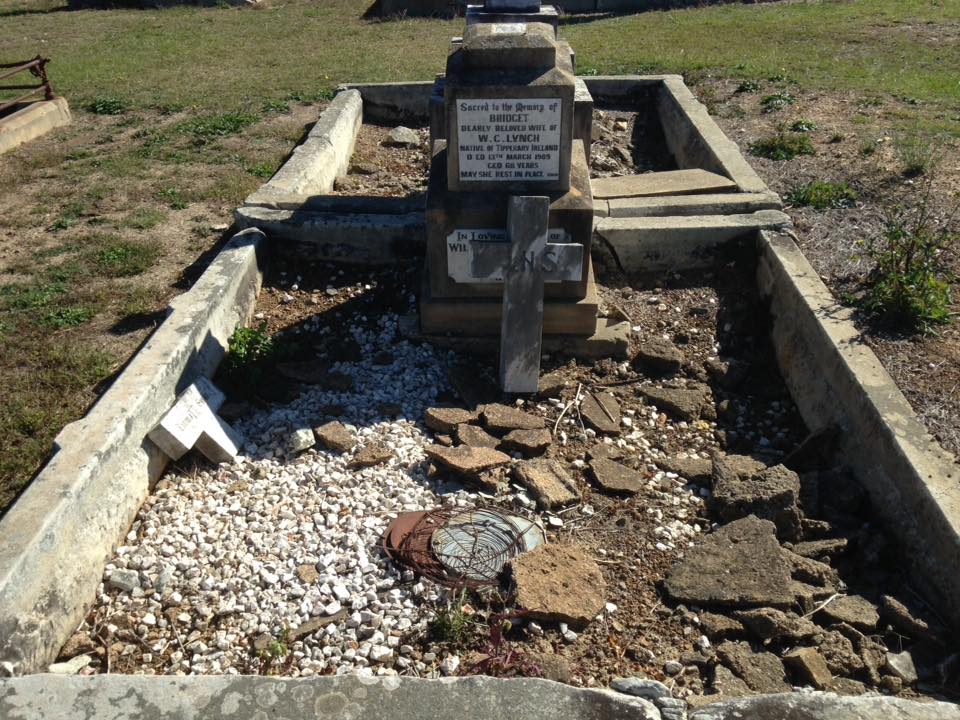
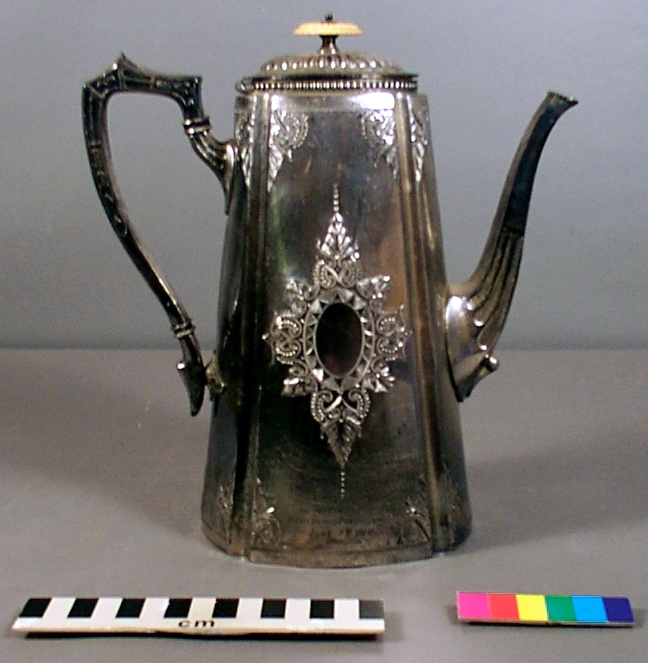
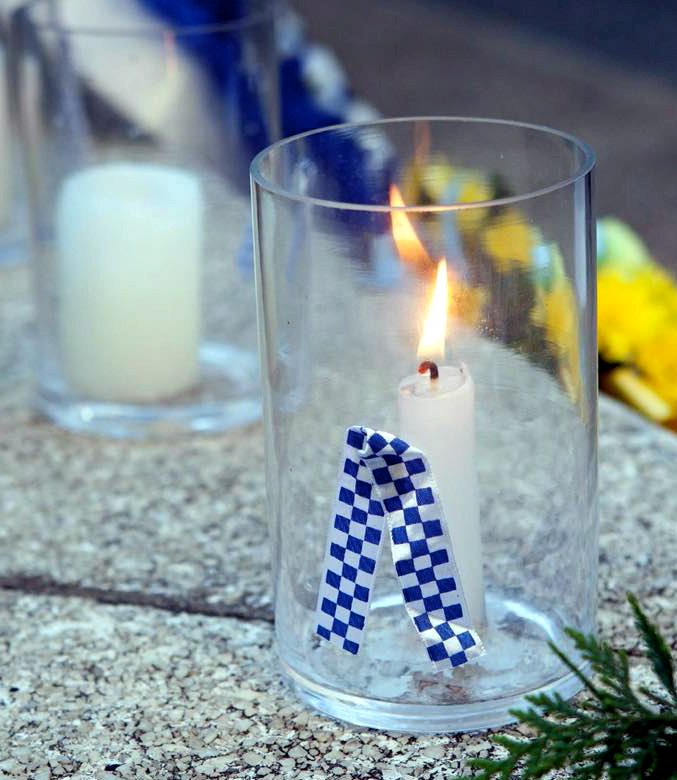
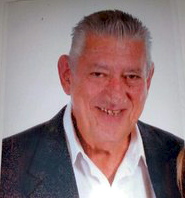
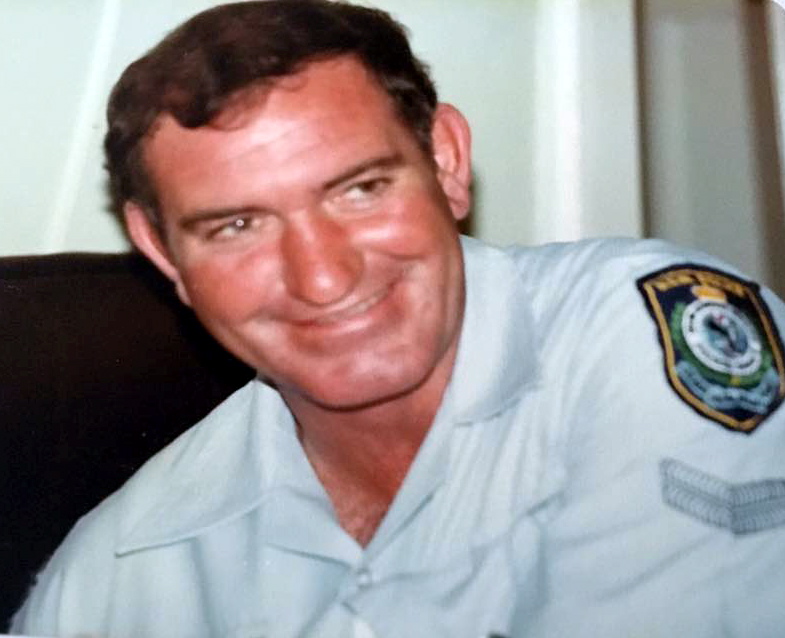

Interested to read details of William Carter Lynch. His wife Bridget Starr was a g.great aunt of my husband and the mother of the ten Lynch children.
Belated thanks to the tribute for my great great grandfather. From family accounts William was very proud to serve the NSW community for as long as he did (43.5 years!), and its lovely to see his legacy here in digital form, as well as that of his son Joseph. Thanks for making that happen.
Hi cousin.
I’m Raymond John Lynch. William Carter Lynch was my great grandfather. My Grandfather was also named William Carter LYNCH. He had 4 children and was married to A Markham. She died young and he got into the bottle and never came out of it. His kids were William Lynch. Elvie Lynch. Joan Lynch and my dad, the baby, John Neville Lynch. They were raised by their Markham Grandmother and their Uncle JOHNNY Markham in Waratah.
cheers.
Raymond.
0411689131